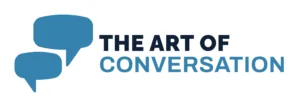The Mandate for Leadership 2025: The Conservative Promise is a policy roadmap developed by The Heritage Foundation and its coalition of conservative organizations. The document serves as a guide for implementing conservative reforms during the next U.S. presidential administration. It is divided into five key sections, each addressing a fundamental aspect of governance. Below is a comprehensive summary of the document’s main points and objectives.
Introduction: A Vision for America
The document begins by outlining the challenges facing America and the conservative movement, drawing parallels to the late 1970s. It positions the roadmap as a unifying strategy to restore American values, strengthen governance, and address pressing social, economic, and national security challenges.
Key initiatives include:
- Reviving the American family as the cornerstone of society.
- Dismantling the administrative state to restore self-governance.
- Defending national sovereignty and securing borders.
- Protecting individual liberties and constitutional rights.
Section 1: Taking the Reins of Government
This section focuses on restructuring the federal government for efficiency and effectiveness. It emphasizes the importance of a well-prepared presidential transition team and a clear policy agenda.
Key recommendations:
- Reforming the White House Office and Executive Office of the President for streamlined decision-making.
- Overhauling central personnel agencies to ensure a merit-based, accountable bureaucracy.
- Enhancing the federal workforce with trained and aligned personnel who can execute the administration’s policies from Day One.
Section 2: The Common Defense
This section emphasizes the need for a strong national defense and secure borders to protect America from foreign and domestic threats.
Key recommendations:
- Strengthening the Department of Defense to address emerging threats, including cybersecurity and space-based challenges.
- Bolstering the Department of Homeland Security to improve border security, combat illegal immigration, and streamline asylum processes.
- Reforming the Intelligence Community to enhance transparency, accountability, and effectiveness in addressing global threats.
Section 3: The General Welfare
This section addresses domestic policies aimed at promoting economic growth, education, healthcare, and environmental stewardship.
Key recommendations:
- Reforming the Department of Education to promote school choice and parental rights in education.
- Restructuring the Department of Health and Human Services to prioritize patient-centered care and reduce regulatory burdens.
- Reassessing the Environmental Protection Agency’s role to balance environmental protection with economic growth.
- Modernizing the Department of Housing and Urban Development to expand affordable housing options and reduce homelessness.
Section 4: The Economy
This section provides a framework for revitalizing the economy through free-market principles and reduced government intervention.
Key recommendations:
- Restructuring the Department of Commerce to focus on fostering innovation and competition.
- Reforming the Department of the Treasury to simplify the tax code and reduce the national debt.
- Advocating for fair trade policies to protect American workers and industries.
- Strengthening support for small businesses through targeted reforms at the Small Business Administration.
Section 5: Independent Regulatory Agencies
This section focuses on the role of independent regulatory agencies in ensuring fair competition, consumer protection, and financial stability.
Key recommendations:
- Reforming the Securities and Exchange Commission to reduce overregulation and enhance market transparency.
- Reassessing the Federal Trade Commission’s role in antitrust enforcement to protect competition and innovation.
- Enhancing the Federal Communications Commission’s ability to address emerging telecommunications challenges.
Pillars of Project 2025
The roadmap is built on four pillars to guide the transition and implementation process:
- Policy Blueprint: A comprehensive plan for governing major federal agencies and addressing key policy challenges.
- Personnel Database: A repository of vetted and trained professionals ready to serve in the next administration.
- Presidential Administration Academy: A training program to educate new appointees on government operations and policy execution.
- Agency Playbook: Detailed transition plans for each federal agency to ensure a seamless transfer of power and immediate policy implementation.
Summary
The Mandate for Leadership 2025 provides a detailed, agency-by-agency roadmap for advancing conservative principles in governance. It highlights the need for a prepared and unified administration capable of addressing America’s challenges while promoting economic growth, national security, and individual liberties. The project calls for collective action and preparation, emphasizing that personnel, training, and clear policies are essential for success.
The document’s ultimate goal is to empower the next administration to restore American values and governance effectively.

